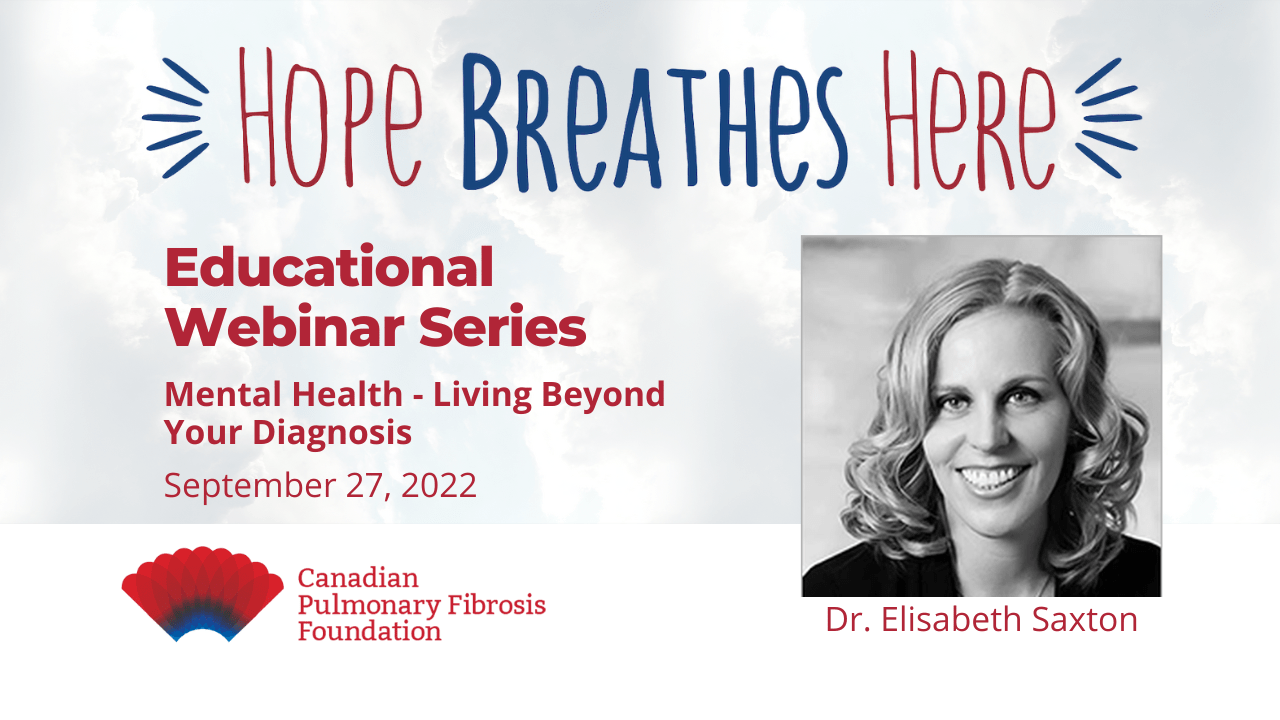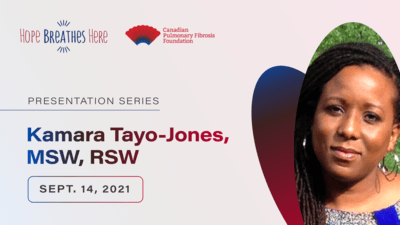Mental Health
Unresolved stress can aggravate people living with a disease like pulmonary fibrosis, and affect those who care for them.
Coping strategies are what we think and do to adjust to our new lives, so that we can regain our quality of life, reduce discomfort and rebuild our sense of self-worth.
It is common to experience uncertainty, anxiety and even depression, when you first learn you, or a loved one, has pulmonary fibrosis (PF).



Such feelings and the stress related to them, can occur at any time when living with a chronic illness.
We can all relate to the feeling of stress, of being overwhelmed, but chronic stress activating high levels of the hormone cortisol, has real impacts, both physical and mental. These can include: feeling exhausted, high cholesterol, high blood pressure, high blood sugar, digestive issues, heart disease, depression of the immune system, heartburn, depression and anxiety, low self-esteem and difficulty managing time and making decisions.
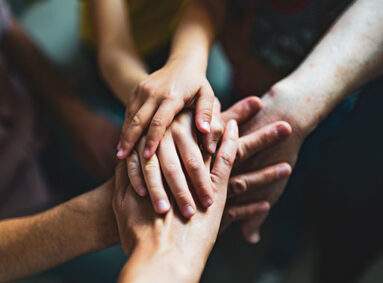
Remember you are not alone
Your family, friends, colleagues, health care team, and the Canadian Pulmonary Fibrosis Foundation (CPFF), are ready and willing to help you. Ask for, and accept, support. Most of you will be diagnosed by a respiratory specialist who can refer you, and your caregiver, to mental health professionals to help you live your best life with PF.
Connect with others who have similar experiences
Sometimes, no one knows better what you are going through, than some one who has been where you are now. CPFF support groups take place across the country, both virtually (during the pandemic) and in person. You’ll learn from expert speakers and from one another. Caregivers are also welcome and some groups have meetings just for them.

Learn about your health condition
Learn all you can about your health condition, your medications and equipment, from reliable sources, such as your health care team and recommended websites, like this one. Be sure explore our resource library.
Work with a mental health professional to get help with changing negative thinking to a realistic mindset.
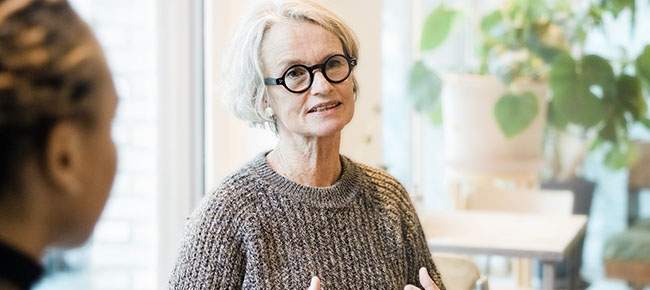
Instead of saying “No, I just can’t do that. It’s too hard. Say: “I’ve done things just as hard before. I can do this.”
Avoid predictably stressful situations
Learn to set healthy boundaries on your time, energy and space. You don’t have to do everything you used to, or those things that cause you stress.

Create a support system and connect with them.

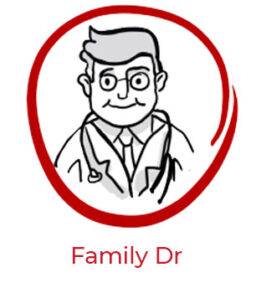

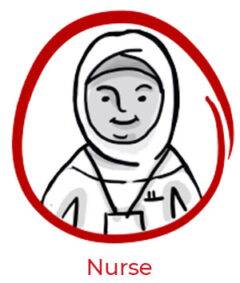

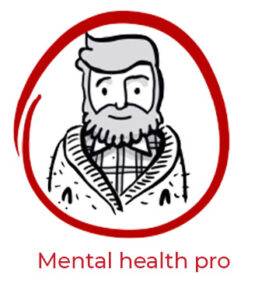

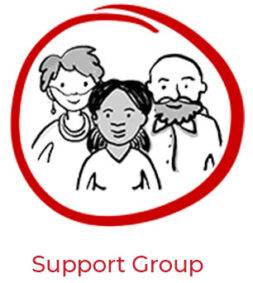
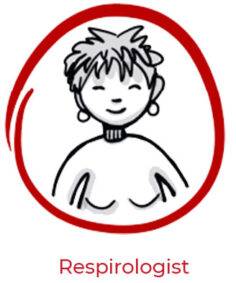
Your family, friends and health care team are also there to help. Let them. Keep in touch with people, by phone, online or in person. Help someone else. It just feels good to connect with others. Volunteer or take up a new activity.
Organize and manage your time and energy
Set SMART goals that are specific, measurable, achievable, realistic, and timely. For example: This week I will practice my breathing exercises for five minutes each day after lunch.

Take good care of yourself. Self care is NOT selfish. Exercise, good nutrition, and sleep are the cornerstones of feeling better.
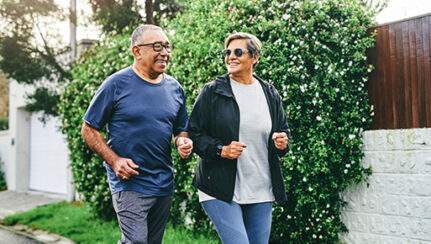
Taking care of yourself is different for everyone. Whatever you choose, self-care activities help you feel calm, connected to something or someone and in control.
Self-care is a way for you to invest time in meeting your own needs. It is intentional and will boost production of your feel-good hormones, or the hormones of happiness”: oxytocin, dopamine, endorphin and serotonin.
Self-care ideas

Consult a dietitian if necessary and set up a good sleep routine. Watch CPFF’s Nutrition and Pulmonary Fibrosis video and check out exercise resources for people living with PF.

Look for small pleasures in your day. For some it is getting a massage or pedicure, and for others it is decluttering or watching the sunset.

Try various relaxation techniques that can take as little as five minutes a day, from stretching, deep breathing and progressive muscle relaxation to meditation, visualization and mindfulness.
More on Mental Health
Mental Health: Living Beyond Your Diagnosis – Dr. Elisabeth Saxton
Dr. Elisabeth Saxton, a clinical psychologist that has worked with individuals managing chronic pain and illness for over a decade, leads participants through a discussion focused on improving mental health and living beyond a PF diagnosis.
Naomi Matsushita’s journey with PF
Naomi Matsushita of Toronto, Ontario, Canada, has interstitial pneumonia, one of the 200 types of pulmonary fibrosis (PF), as well as anti-synthetase syndrome, an auto-immune condition. This is her story.
Coping with Loss & Change
Managing anxiety during COVID-19
Karen Beaton, a registered nurse and certified respiratory educator, shares tips on how to cope with feelings of anxiety while keeping your lungs and overall health safe during the pandemic.
Read Next…
Living with Lung Fibrosis: Optimising Mental Health and Well-being
In this EU-PFF webinar, Dr. Brendan Kelly gives tips on managing your well-being, and shares the ‘secret to happiness’.
Being a PF caregiver has it challenges and rewards
Beth Garbutt has found ways to cope and thrive as a care partner to her husband Rob, who lives with IPF.
Coping with loss and change
This article in the October 2021 issue of the CPFF newsletter Hope Breathes Here, offers highlights from the video of the same name, with tips on coping strategies from Kamara Tayo-Jones, Social Work Therapist.



